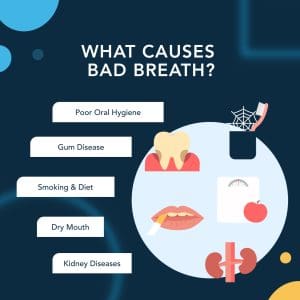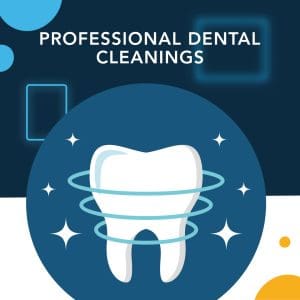Bad breath is a common concern that affects millions of people worldwide, leading to social embarrassment and anxiety. However, the causes of bad breath are frequently misunderstood, and effective remedies are often overlooked. In this article, we will explain what causes bad breath, including dietary factors, oral hygiene habits, and systemic health conditions that can contribute to the problem.
We will also provide practical advice on prevention strategies and a comprehensive overview of both home remedies and professional treatments available. Whether you’re struggling with occasional bad breath or dealing with chronic halitosis, this guide will help you understand the underlying causes and explore effective solutions to freshen your breath and improve your confidence.
What is Halitosis?
Halitosis, commonly known as bad breath, is a condition characterized by an unpleasant odor emanating from the mouth. It can result from poor dental hygiene, infections in the mouth, certain foods, smoking, or underlying health problems like gastrointestinal disorders. Persistent halitosis may require professional evaluation to identify and treat the root cause effectively.
What Causes Bad Breath?
Bad breath can be caused by various factors, including poor oral hygiene, gum disease, dry mouth, and trapped food particles. Lifestyle choices such as smoking and diet, along with medical conditions like diabetes, sinus infections, and liver or kidney diseases, also contribute to bad breath. Addressing the underlying cause is necessary for effectively managing and eliminating bad breath.
Food & Beverages
There are particular foods and drinks that are well-known for causing bad breath. Onions, garlic, and spices can leave a lasting smell, while coffee and alcohol can reduce the production of saliva, leading to a dry mouth (which worsens bad breath). Diets high in sugar also encourage the growth of bacteria that cause unpleasant smells in the mouth.
Poor Oral Hygiene
Bad breath is often caused by poor oral hygiene. When you don’t brush and floss your teeth regularly, food particles can decay in your mouth. This creates an environment for bacteria to grow on your teeth, gums, and tongue, which produces sulfur compounds that cause unpleasant oral odors that can linger.
Dry Mouth (Xerostomia)
Dry mouth, or xerostomia, contributes significantly to bad breath by reducing saliva production. Saliva naturally helps cleanse the mouth, removing particles that can cause odor. Without adequate saliva, bacterial growth increases, leading to a foul smell. Dry mouth can result from certain medications, salivary gland issues, or continuous breathing through the mouth.
Tobacco Use
Tobacco products like cigarettes and chewing tobacco are significant contributors to bad breath. They create a stale smell and reduce saliva flow, which helps clean the mouth and control bacteria. Tobacco use can also worsen gum disease, which can make mouth odors even stronger.
Dental Issues
Dental problems like cavities, gum disease, and dental appliances that don’t fit well can cause bad breath. These problems create areas where bacteria can grow, causing unpleasant smells. To manage these issues, it’s important to have regular dental check-ups and maintain good oral hygiene. This will ensure a healthier mouth and fresher breath.
Medical Conditions
There are quite a few medical conditions that can lead to bad breath. One common cause is sinus infections, which can lead to a buildup of mucus and bacteria in the nasal passages and throat. Another potential contributor is diabetes, which can cause a fruity odor on the breath due to high levels of ketones in the body. Digestive issues such as acid reflux can also be to blame, as stomach acid can irritate the esophagus and create an unpleasant taste and odor in the mouth.
In addition to these conditions, liver or kidney problems can also cause distinct oral odors due to the buildup of toxins in the body. These odors can range from musty to sweet and may be indicative of a serious underlying health issue that requires medical attention
Crash Diets
Crash diets, particularly those low in carbohydrates, can also lead to bad breath. As the body breaks down fat for energy, it produces ketones, which have a strong, unpleasant odor that is expelled through the breath. This metabolic process, known as ketosis, is a common culprit behind the bad breath associated with dieting.
How Do You Prevent Bad Breath?
Preventing bad breath is essential for maintaining good oral health and social confidence. Effective prevention strategies can help eliminate embarrassing situations and discomfort in social interactions, leading to better interpersonal relationships. By addressing the underlying causes of bad breath, more severe dental and health conditions can also be prevented, ensuring a healthier oral environment and overall well-being.
Improve Oral Hygiene
Improving oral hygiene is one of the first steps to preventing or eliminating bad breath. You should brush your teeth at least twice a day and floss daily to remove food debris and plaque from between the teeth and gums. To reduce bacteria, you can use an antibacterial mouthwash every time you brush. Cleaning your tongue with a scraper can also remove bacteria that cause odor.
Regular Dental Visits
You should see your dentist regularly to prevent bad breath. A dentist can professionally clean difficult-to-reach areas, removing plaque and tartar that contribute to bad breath. These visits also allow for early detection and treatment of oral health issues like gum disease or cavities that can cause halitosis. Dentists can also provide personalized advice on improving oral hygiene based on your specific needs. To make an appointment for a routine checkup, you can find a dentist near me in Broward County today.
Stay Hydrated
It’s important to drink plenty of water to keep your mouth clean and fresh. Drinking water helps to maintain the natural flow of saliva, which cleanses the mouth by removing particles that can cause bad breath. Dry mouth can lead to bad breath, so drinking water regularly can help counteract this effect, especially after meals or when you consume coffee or alcohol. Oral malodor can be significantly reduced by carrying a water bottle and sipping water throughout the day.
Quit Smoking
Tobacco products not only leave a strong smell in your mouth but also reduce saliva flow, which is essential for cleaning and moisturizing your mouth. Smoking can also damage your gums and worsen dental problems, which can lead to bad breath. By quitting smoking, you can improve your oral health, reduce gum disease, and significantly freshen your breath, which can improve your overall well-being.
Smart Dietary Choices
Avoiding foods known to cause oral odor, such as onions, garlic, and spicy foods, can significantly prevent bad breath. Instead, you should opt for crunchy fruits and vegetables like apples and carrots, which increase saliva production and naturally clean your teeth. Consuming probiotic-rich foods like yogurt can also balance oral bacteria and further reduce bad breath. Additionally, reducing sugar intake helps prevent the growth of odor-causing bacteria.
When Should You See a Dentist for Bad Breath?
If you have bad breath that persists despite practicing good oral hygiene, it is recommended to see a dentist. If bad breath is accompanied by other symptoms like swollen gums, pain, or bleeding, it could indicate gum disease or other dental problems. There are many other tell-tale signs that we can explore to signal when it is time to see a dentist. If you do have persistent bad breath, a dentist in Davie, Florida, can help you diagnose and treat the underlying causes of halitosis, which can improve both your oral health and breath freshness.
Morning Bad Breath that Doesn’t Improve
If morning bad breath continues throughout the day and doesn’t improve with regular brushing and flossing, it’s advisable to see a dentist. This can indicate underlying issues such as infections or gum disease that need professional attention. A dentist can provide treatments and strategies to effectively manage and eliminate the problem.
Bad Taste or Dry Mouth
Experiencing a chronic bad taste in your mouth or dry mouth should also indicate that it is time to visit the dentist. These symptoms can be signs of various oral health issues, including salivary gland problems or infections. A dentist can diagnose the underlying cause and recommend appropriate treatments or changes to your oral care routine to alleviate the symptoms.
Gum Disease Symptoms
If you notice symptoms of gum disease, such as red, swollen, or bleeding gums, persistent bad breath, or loose teeth, it’s recommended to see a dentist as soon as possible. These signs indicate potential periodontal issues that can worsen without professional intervention. Early detection and treatment are key to preventing more serious complications and maintaining oral health.
Dental Decay or Abscesses
If you suspect dental decay or have symptoms of an abscess, such as severe toothache, sensitivity, swelling, or a foul taste, you should consult a dentist immediately. If left untreated, these conditions can lead to more serious infections or complications. A dentist can provide the necessary treatments to resolve the issue and prevent further damage.
Following Dental Surgery
Following dental surgery, it’s important to see your dentist if you experience unusual symptoms such as foul breath, persistent pain, swelling, excessive bleeding, or signs of infection. These could indicate complications from the surgery. Prompt follow-up care can address any issues early on, ensure proper healing, and prevent more serious problems from occurring.
If You Wear Dental Appliances
If you wear dental appliances like dentures, braces, or bridges and experience discomfort, bad breath, or irritation, it’s important to consult your dentist. Bad breath could indicate improper fit or the need for adjustments. Regular check-ups ensure that your appliances are functioning correctly and maintaining your oral health.
Bad Breath Treatment Options
There are many different ways to treat bad breath, depending on the specific causes and severity of the condition. Effective treatment plans can range from simple adjustments in daily oral hygiene practices to more advanced medical interventions. Understanding the root causes is necessary for selecting the appropriate remedy to ensure long-lasting freshness and overall oral health improvement.
 Professional Dental Cleanings
Professional Dental Cleanings
Professional dental cleanings are an effective treatment for bad breath, especially when it stems from plaque buildup or early gum disease. During these cleanings, dental professionals thoroughly remove plaque and tartar from above and below the gumline, helping to eliminate the bacteria that cause bad breath and prevent further oral health issues. Regular cleanings (usually twice a year) are also necessary for maintaining fresh breath.
Saliva Stimulants & Substitutes
Saliva stimulants and substitutes can be vital in treating bad breath, particularly if dry mouth is the cause. These products help increase saliva production or mimic its cleansing effects, thereby reducing mouth dryness and the associated bacterial growth that leads to bad breath. Options range from sugar-free chewing gum to lozenges and over-the-counter oral moisturizers.
Dental Repairs
Dental repairs such as filling cavities, fixing broken teeth, or replacing faulty dental work can treat bad breath related to dental decay or damage. These repairs eliminate the crevices where bacteria can accumulate and produce odors, thereby improving oral health and reducing bad breath. Regular dental assessments help detect and address these issues early on, preventing issues from happening down the road.
Tongue Cleaning
Bacteria, food debris, and dead cells often accumulate on the tongue’s surface, contributing to unpleasant odors. Regularly using a tongue scraper or brushing the tongue with a toothbrush can remove these deposits, significantly improving oral hygiene and reducing bad breath.
Mouthwashes & Rinses
Mouthwashes and rinses are excellent tools for combating bad breath. They can reduce bacteria, neutralize odors, and provide a fresh, clean feeling. Antiseptic or antibacterial varieties help control the bacteria that cause bad breath, while others are specially formulated to moisturize a dry mouth, further reducing halitosis. Regular use complements brushing and flossing effectively.
Schedule an Appointment with a Dentist in Davie, FL
If you’re experiencing bad breath, dental issues, or just need a routine check-up, it’s a good idea to schedule an appointment with a dentist in Davie, FL. With a range of experienced dental professionals available, you can find services tailored to your needs, from general dentistry to more specialized care like orthodontics, pediatric dentistry, or cosmetic dentistry. Don’t wait for dental problems to worsen. Contact a local dental office today to schedule an appointment with a Davie dentist and ensure your oral health is managed by experts who care about keeping your smile bright and healthy.
December 20, 2024

 Adult
Adult




 Professional Dental Cleanings
Professional Dental Cleanings